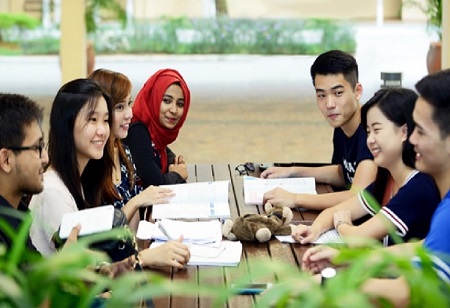The Ministry of Investment, Trade, and Industry (MITI) in Malaysia has initiated discussions with relevant ministries and agencies, including the Ministry of Human Resources, the Ministry of Higher Education, and the National Technical and Vocational Education and Training (TVET) Council. The goal is to enhance the skilled workforce in the country. MITI Minister Tengku Datuk Seri Zafrul Abdul Aziz stated that these engagements aim to formulate appropriate plans for increasing the number of skilled Malaysian workers. As an example, they are exploring the possibility of permitting students, particularly those in engineering programs in Malaysian universities, to work. Currently, such students are not allowed to engage in employment. The discussions also involve identifying areas with a shortage of Malaysian workers, especially in value-added services and high-tech sectors, and considering allowing students to work for a designated period. However, these proposals have not yet been presented to the cabinet for approval.
"That serves as a temporary solution, but we also have to attract our workers and students who are currently abroad to return; there are many of them," he emphasized. Tengku Zafrul also highlighted the importance of skilled manpower as investment inflows increase. He cited examples such as the recent opening of the AT&S Austria Technologie & Systemtechnik (Malaysia) Sdn Bhd's plant in Kulim, Kedah, which required 6,000 engineers, and Intel, which needed 5,000 engineers. While acknowledging the positive aspects, Tengku Zafrul emphasized the need for the country to ensure the availability of necessary talents. Meanwhile, MITI is in the final stages of negotiating several free trade agreements (FTAs), including one with the United Arab Emirates (UAE), anticipated to be concluded by the end of June this year.
Textile is one of the exported products, and there is a growing trend in halal textile certification, a practice already adopted by China and Indonesia. However, Malaysia currently lacks such a certification. In response, Halal Development Corp, in collaboration with the Malaysian Islamic Development Department (Jakim), has been tasked with developing a standard for halal textile, according to Tengku Zafrul Abdul Aziz. The MITI Dialogues 2024 event witnessed the participation of nearly 300 individuals from 24 ministries and agencies under MITI, along with representatives from 103 associations, chambers of commerce, and business councils. The discussions focused on strategies, solutions, and effective implementation to further strengthen Malaysia's industrial, trade, and investment ecosystem, aligning with the New Industrial Master Plan (NIMP) 2030 as the overarching policy.

